University of California San Francisco
Give to UCSF-
-
Science In Focus: New Mysteries in the Genome of Stentor
The genome of the single-celled organism Stentor, recently sequenced by researchers, may help lead to new insights about how to help our own cells and tissues recover from injury.
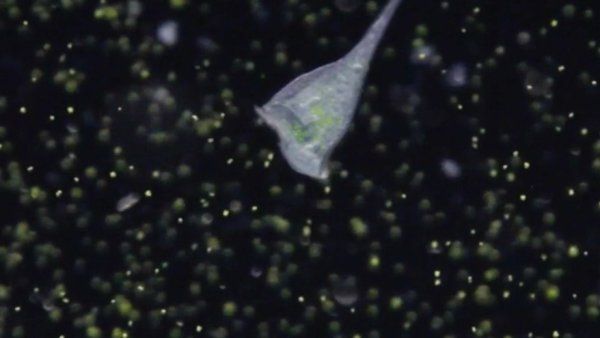
-
New Web App Helps UCSF Community Reduce Waste
As part of the UCSF effort to reach zero waste by 2020, Facilities Services has launched a new recycling and waste reduction app.

-
UCSF Finds Most Drinking Water Sources Meet EPA Standards for Lead
UCSF continues to sample cold drinking water for lead across its campus and medical center locations in a voluntary testing program that began last summer.

-
New Collaboration Launches to Advance Technology for Children’s Health
UCSF has joined with UCSF Benioff Children’s Hospital, Children’s Hospital Oakland Research Institute and UC Berkeley to form the Engineering for Children’s Health Initiative.
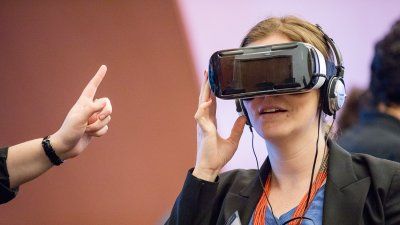
-
AB 2664 Supports Innovation, Entrepreneurship at UC
A $22 million investment via California State Assembly Bill 2664 is supporting innovation and entrepreneurship at UC San Francisco and across the University of California system.
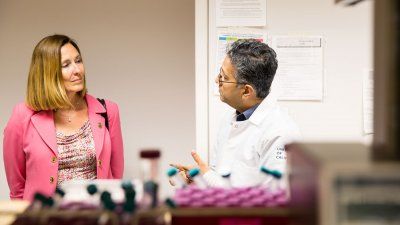
-
Meet the Man Trying to Help Us Embrace Death
-
UCSF’s CARE Program Honored by Citywide Gender Equality Initiative
UCSF’s support and advocacy program for survivors of interpersonal violence has been selected as a model practice by the San Francisco Department on the Status of Women.
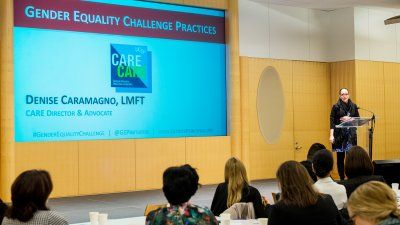
-
Scalp-Cooling Caps Help Prevent Hair Loss in Chemo
-
Scalp Cooling Can Help Some Breast Cancer Patients Retain Hair
Scalp cooling can lessen some chemotherapy-induced hair loss – one of the most devastating hallmarks of cancer – in certain breast cancer patients, according to a new multicenter study from UCSF, Weill Cornell Medicine and three other medical centers.
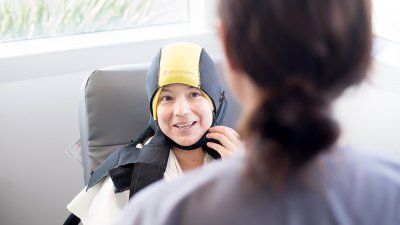
-
UCSF Remains Top Public University in Fundraising for 2016
UCSF for the second year straight has raised the most in private contributions of any public U.S. university, with $595.9 million.
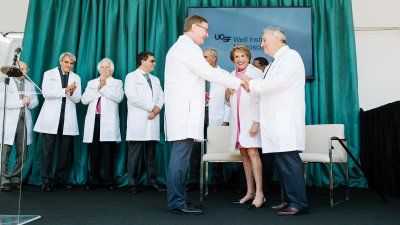
-
MEDIA ADVISORY: SF Mayor, Zuckerberg San Francisco General, UCSF Gather for Ceremonial Signing to Advance City’s Health Mission
SF Mayor, the Department of Public Health and ZSFG gather to celebrate the City’s approval of an ordinance that enables the world-class UCSF research enterprise at ZSFG to continue.

-
Mayor Signs Legislation Allowing New UCSF Research Building at Zuckerberg San Francisco General
San Francisco Mayor Edwin M. Lee joined physicians, researchers and patients Monday for the signing of an ordinance that will allow UCSF to proceed with construction of a new research and academic building at Zuckerberg San Francisco General Hospital and Trauma Center.

-
Easily distracted? 3 ways to quiet your mind
-
Human Brain ‘Organoids’ Offer New Insight into Rare Developmental Disease
Research uses brain “organoids” — tiny 3D models of human organs that scientists grow in a dish to study disease — to identify root causes of MDS, a rare genetic disorder that causes fatal brain malformations.

-
UCSF’s Resource Allocation Program (RAP) Accepting Applications for the Spring 2017 Cycle
UCSF’s Resource Allocation Program, which offers a single online application process for a wide variety of intramural funding opportunities, is now inviting applications for the Spring 2017 cycle.
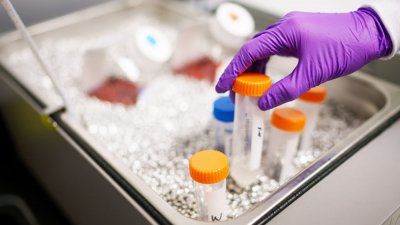
-
UCSF Convenes Town Hall to Hear Concerns on Immigration Executive Order
While President Donald Trump’s Executive Order on immigration faces legal challenges in the courts, UCSF is offering members of the University community support wherever it’s needed, officials said at a town hall meeting on Feb. 3.
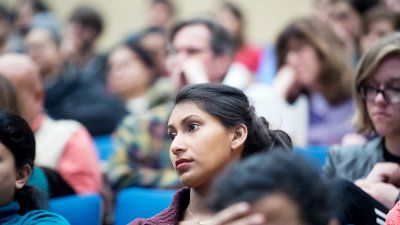
-
UC Regents Approve Budget, Design for Block 33 Building at Mission Bay
UCSF’s new building at Mission Bay to house desktop research, administrative space, and a new Center for Vision Neurosciences with ophthalmology clinics and academic space recently received approval from the UC Regents.

-
Cancer immunotherapy has life-saving powers — and limits
-
Fujimori Delivers 2017 Byers Award Lecture on Tackling Antibiotic Resistance
The problem of antibiotic resistance and how research may help keep drugs effective was the topic of this year’s Byers Award Lecture in Basic Science, given by Danica Galonić Fujimori, PhD, on Jan. 31.
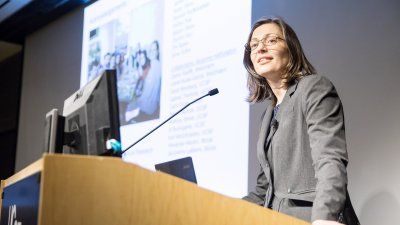
-
15 UCSF Researchers Named to First Cohort of Chan Zuckerberg Biohub Investigators
Fifteen UCSF faculty members have been named to the first cohort of Chan Zuckerberg Biohub Investigators.
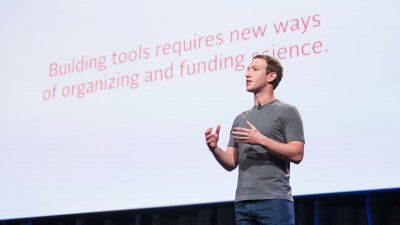
-
In Decade Since Founding, UCSF’s Center for Vulnerable Populations Has Innovated Research, Care
UCSF’s Center for Vulnerable Populations is 10 years old, and over that time it has transformed understanding of how social vulnerabilities relate to health.
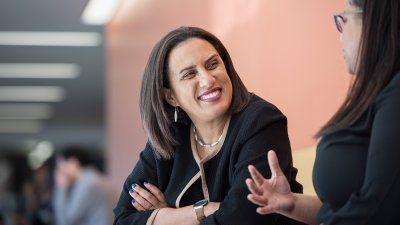
-
UCSF Wins 8 Regional CASE Awards for Communications and Program Excellence
UCSF has won eight awards, including three Gold Awards, from the Council for Advancement and Support of Education in an annual regional competition.
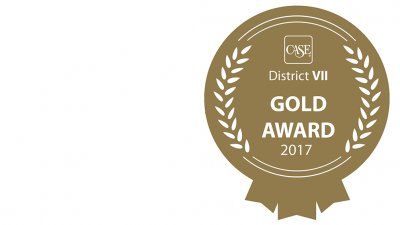
-
If Only The Rest Of America Got Concussion Care Like NFL Players
-
The Mysterious 98%: Scientists Look to Shine Light on Our Dark Genome
A nationwide project that includes two UCSF researchers will use the latest technology, including gene editing, to gain insights into human biology that could one day lead to treatments for complex genetic diseases.
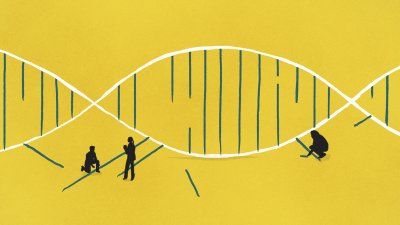
-
UCSF study: ‘Dense breasts’ exceed all other breast cancer risk factors
-
‘Dense Breasts’ Eclipse All Other Known Breast Cancer Risk Factors
Women whose breasts are composed largely of glandular tissue, rather than fat, have an amplified risk of breast cancer, which exceeds the impact of other widely known risks on a population level.
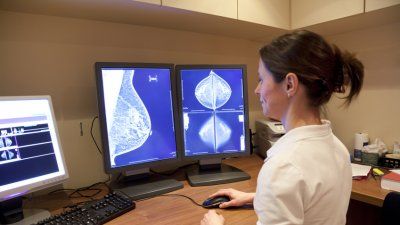
-
Poor Odor Identification May Be Early Warning for Dementia
Poor performance on a simple odor identification test was associated with a significantly increased risk of developing dementia years later.

-
Elemeno Health is a personal assistant for hospital staff
-
Precision-Medicine Approach Could Revive Prostate Cancer Test
A new study identified genetic predictors of normal prostate-specific antigen (PSA) levels in healthy men, which could be used to improve the accuracy of PSA-based prostate cancer screening tests.
